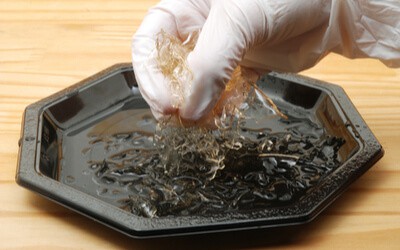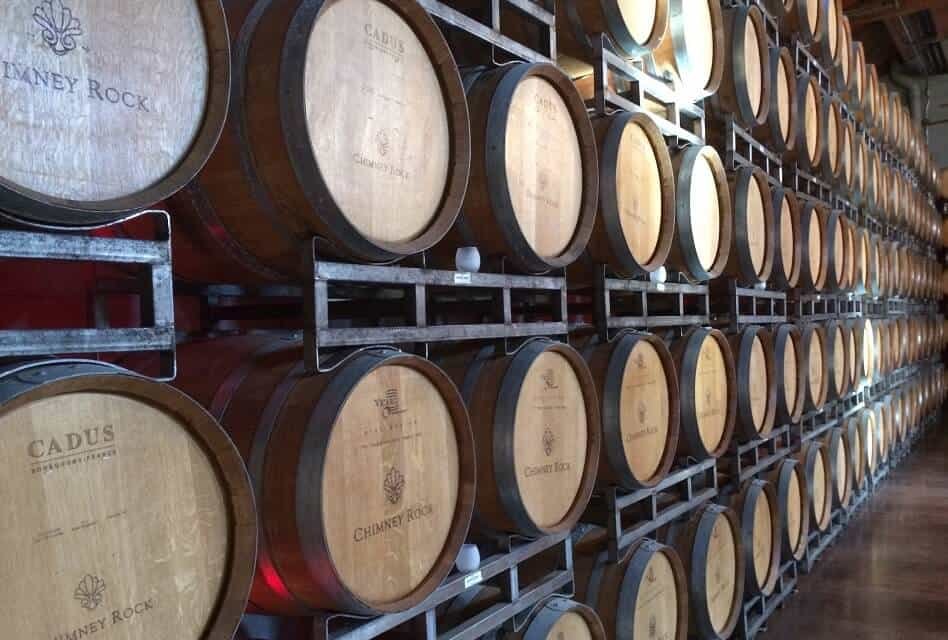Winemaking is a time-consuming and labor-intensive task. And it has various stages that impact the quality of the resulting wine. Filtration is one of them. But why is wine filtered? Is wine filtering actually necessary, and how is it done?
Wine is filtered to remove sediments such as grape solids, dead yeast cells, or crystallized acids, resulting in a more pleasant drinking experience. Filtration can also improve wine’s flavor, and it increases its shelf-life by removing microorganisms.
Filtering wine is not a necessary part of winemaking, though. Some winemakers waive it entirely to create natural, vegan, or biodynamic wines. In the following paragraphs, we will discuss the pros and cons of filtered wine.
WHY IS WINE FILTERED?
There are multiple reasons to filter wine. One is to remove sediments that form during the winemaking process. Sediments can be particles from grape skins, stems, or seeds, crystallized acids, tannins, or dead yeast cells. To prevent an unpleasant gritty drinking experience, winemakers filter their wines to remove these sediments.
Filtering can also impact a wine’s taste. When harsh tannins are filtered out, the wine as a whole becomes softer and less astringent. It is also possible to remove specific acids to make the wine less sour.
Another reason for filtering wine is the removal of microorganisms. While these organisms are not harmful to humans, they can cause the wine to go off faster. Thus, many winemakers choose to remove them.
Of course, the filtration process also alters a wine’s appearance. It becomes clearer and more brilliant. In contrast, unfiltered wines may appear cloudy.
When Is Wine Filtered?
Filtering wine can happen at different stages of the winemaking process. In most cases, vintners perform it at the end of the process, immediately before bottling. At this point, they can extract the sediments that formed during the fermentation and the aging process and also optimize the flavor.
Instead, they might decide to do it earlier, for instance, after the fermentation or during the barrel aging process.
WHAT IS THE DIFFERENCE BETWEEN FILTERED AND UNFILTERED WINE?
There are several differences between filtered and unfiltered wines:
- Logically, the production process is different. Filtered wines undergo an additional step during which vintners extract the sediments. As unfiltered wines do not undergo this process, less time and work are necessary to make them.
- Many winemakers use animal products such as gelatine, isinglass, or casein in the filtering process. Although these substances do not stay in the wine, they are not acceptable for people who follow a vegan diet. On the other hand, unfiltered wines typically do qualify as vegan wines.
- Unfiltered wines appear cloudy sometimes, similar to natural apple juice. When swirling them, you might see the sediments moving around. In contrast, filtered wines are clear and typically contain little to no sediments.
- As unfiltered wines might contain plenty of sediments, they can give you a gritty mouthfeel when drinking them. For filtered wines, it is rather unlikely to have this experience.
Is It Necessary to Filter Wine?
From a medical point of view, it is not necessary to filter the wine. Sediments such as grape solids are not harmful to humans. However, they can create a gritty mouthfeel that wine lovers consider off-putting. Also, wine with sediments might appear cloudy, and many people don’t like that. Thus, vintners filter their wines to provide a better look and drinking experience.
Is Unfiltered Wine Safe to Drink?
Unfiltered wine is perfectly safe to drink. As mentioned before, sediments are no medical risk and will not cause harm. Their only effect is a potentially gritty mouthfeel when drinking the wine. Besides that, you don’t have to worry about the health impact of unfiltered wine.
Does Filtering Wine Remove Sulfites?
The filtering process that wine undergoes before bottling does not remove sulfites. It only extracts particles that might be offputting for drinkers. But it does not impact the sulfite content of the wine at all.
It’s worth noting that wine naturally contains only small amounts of sulfite. However, many vintners add sulfites artificially to increase the wine’s shelf-life. If you prefer low-sulfite wines, go for natural, low-intervention, organic, or biodynamic wines.
You might come across devices or substances meant to remove sulfites from wine before drinking it. Among them are purifiers that you can attach to the bottleneck, filter membranes, wands to swirl in your glass, and sprays. Whether these items actually reduce sulfite contents is arguable.
HOW IS WINE FILTERED?
Technically speaking, there are two general approaches to removing sediments from wine: filtering and fining. Vintners often use both of them to optimize their wines.
During the filtration process, the wine is moved through a material similar to a coffee filter. It has tiny pores so that liquids can move through. But particles are held back and filtered out. Filter membranes are available in various sizes. Some filter only bigger particles, but others even remove microbes from the wine. It is not uncommon that wine goes through multiple filtering instances with membranes of different sizes.
Wine fining aims to remove even the smallest particles and optimize the flavor simultaneously. Winemakers can extract crystallized acids or tannins by adding substances like gelatine, casein, or isinglass to the wine. These materials bind themselves physically to the particles, form bigger clusters, and sink to the bottom of the vessel. The winemaker then racks the wine to separate these clusters from it.

Is Wine Filtered through Animal Bones?
Vintners do not use animal bones to filter their wines. However, some of the most popular fining agents include gelatin. Gelatin is made from collagen, and collagen is actually extracted from animal bones. Mainly pig bones are used for this purpose.
Is Wine Filtered through Fish Bladders?
Wine is not filtered through fish bladders literally. But some vintners use isinglass, another form of collagen, which indeed is obtained from dried swim bladders of fish. Particularly the bladders of sturgeons are good sources of isinglass.
Is Wine Filtered through Fish Scales?
Unlike fish bladders, fish scales do not deliver any materials for fining wine.
Is Wine Filtered through Eggs?
Albumin, a protein gained from egg whites, is a common fining agent for wine. As it has excellent capabilities of removing tannin particles, vintners often use it for filtering their red wines. By doing so, the resulting wines get less harsh and bitter.
Is Wine Filtered through Milk?
Like animal bones or fish bladders, milk is not used as a filtering agent. But one of its components is casein. This protein sticks to other protein molecules, such as dead yeast cells. It then forms bigger clusters that sink to the bottom of the wine container, allowing vintners to extract them easily.
Is Wine Filtered through Pig Intestines?
Winemakers do not use pig intestines to filter their wines, and they don’t use products gained from pig intestines either. They might use gelatine extracted from pig bones in some cases. Besides, there are no fining agents made from pig products.
FINAL WORDS
Wine filtering is a standard part of the winemaking process. And with the information from this article, you know why vintners follow this practice. But actually, filtering is not the deciding factor of wine quality. Thus, you should try filtered as well as unfiltered wine to find out which you like best.
Recent Posts
Switzerland is famous not only for its beautiful landscapes and its picturesque towns but also for some food items. Especially Swiss cheese and chocolate are world-famous. But do you actually know a...
Winemaking is a sophisticated process that includes multiple steps and can take several years. Depending on the desired wine and the vintner's preferred techniques, these steps can differ. However,...

